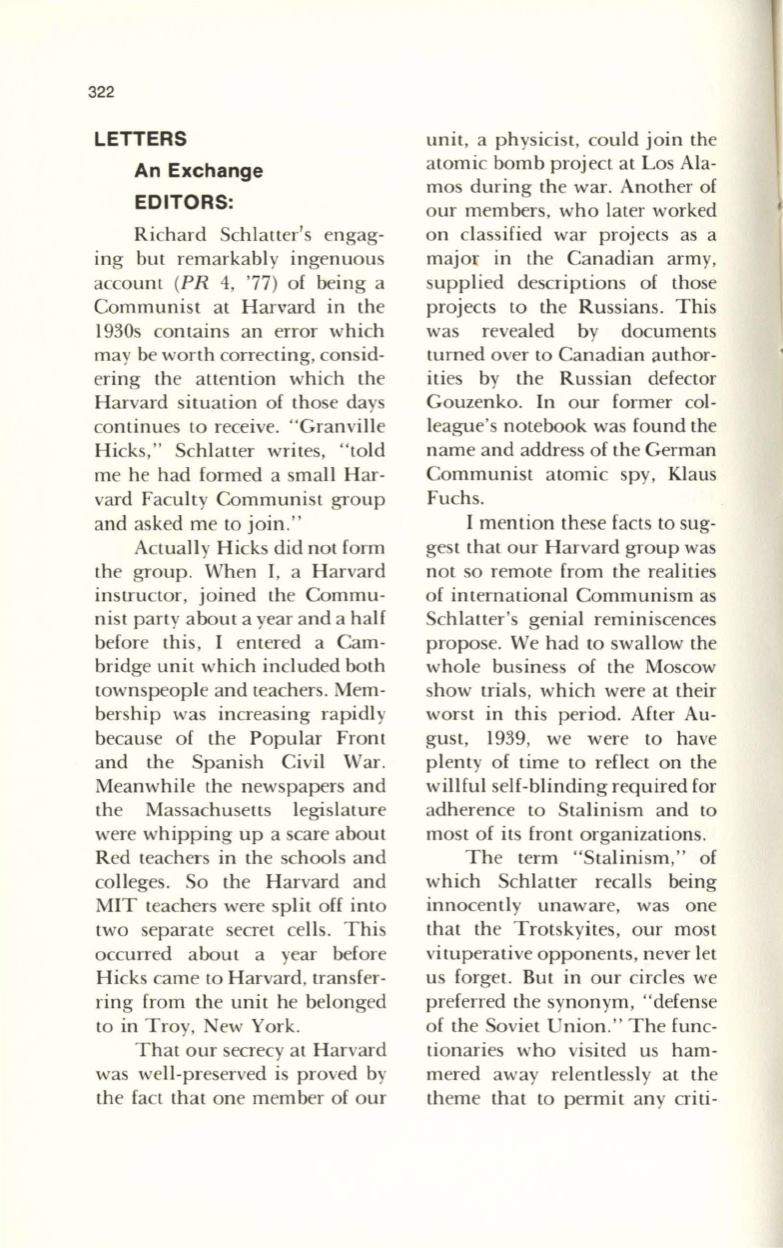
322
LETTERS
An Exchange
EDITORS:
Richard Schlatter's engag–
ing but remarkably ingenuous
account
(PR
4, '77) of being a
Communist at Harvard in the
1930s contains an error which
may be wonh correcting, consid–
ering the attention which the
Harvard situation of those days
continues to receive. "Granville
Hicks," Schlatter writes, "told
me he had formed a small Har–
vard Faculty Communist group
and asked me to join."
Actually Hicks did not form
the group. When I, a Harvard
instructor, joined the Commu–
nist party about a year and a half
before this, I entered a Cam–
bridge unit which included both
townspeople and teachers. Mem–
bership was increasing rapidly
because of the Popular Front
and the Spanish Civil War.
Meanwhile the newspapers and
the Massachusetts legislature
were whipping up a scare about
Red teachers in the schools and
colleges. So the Harvard and
MIT
teachers were split off into
two separate secret cells. This
occurred about a year before
Hicks came to Harvard, transfer–
ring from the unit he belonged
to
in Troy, New York.
That our secrecy at Harvard
was well-preserved is proved by
the fact that one member of our
unit, a physicist, could join the
atomic bomb project at Los Ala–
mos during the war. Another of
our members, who later worked
on classified war projects as a
major in the Canadian army,
supplied descriptions of those
projects to the Russians. This
was revealed by documents
turned over to Canadian author–
ities by the Russian defector
Gouzenko.
In
our former col–
league's notebook was found the
name and address of the German
Communist atomic spy, Klaus
Fuchs.
I mention these facts to sug–
gest that our Harvard group was
not so remote from the realities
of international Communism as
Schlatter's genial reminiscences
propose. We had to swallow the
whole business of the Moscow
show trials, which were at their
worst in this period. After Au–
gust, 1939, we were to have
plenty of time to reflect on the
willful self-blinding required for
adherence to Stalinism and to
most of its front organizations.
The term "Stalinism," of
which Schlatter recalls being
innocently unaware, was one
that the Trotskyites, our most
vituperative opponents, never let
us forget. But in our circles we
preferred the synonym, "defense
of the Soviet Union." The func–
tionaries who visited us ham–
mered away relentlessly at the
theme that to permit any criti-


